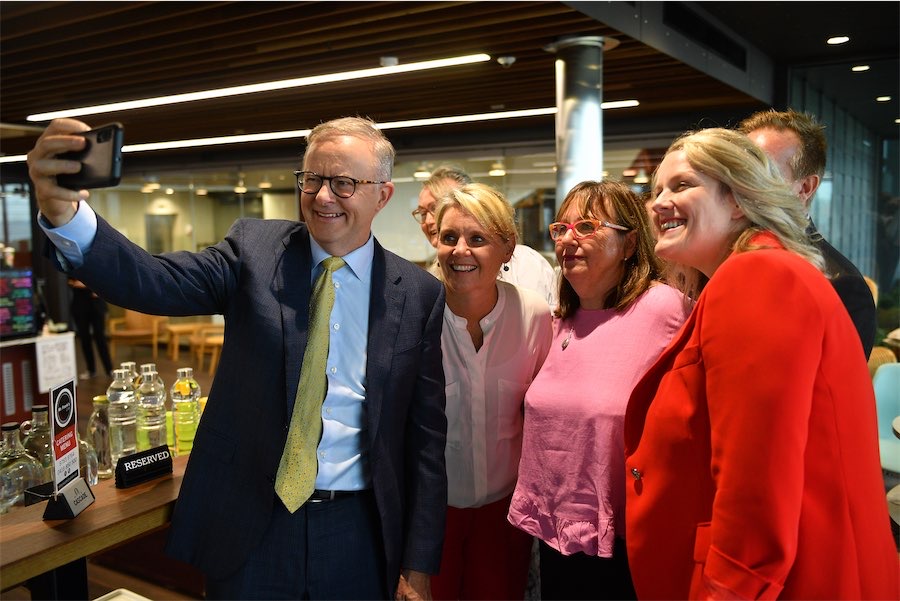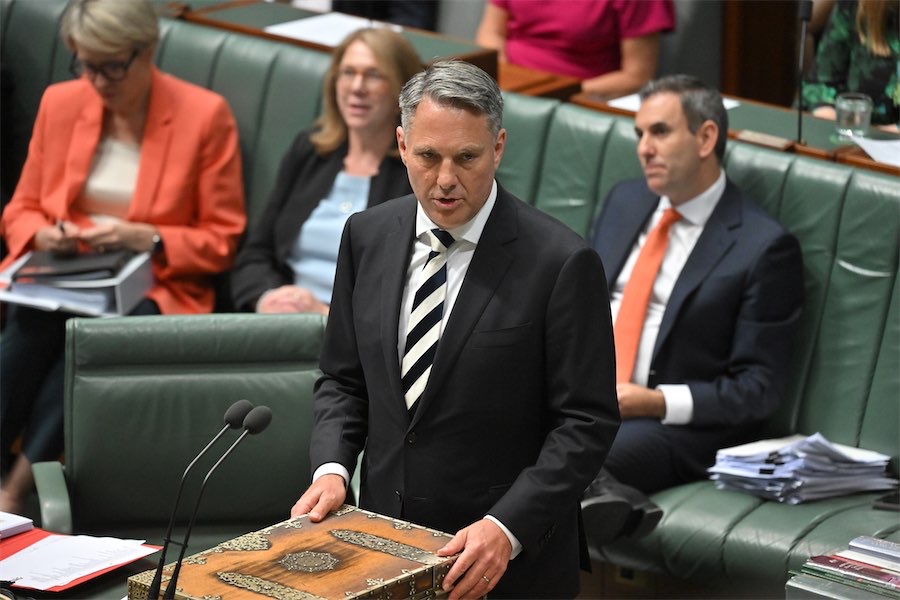“Long-term governments, such as Labor in the ACT, suffer from boiling-frog syndrome regarding their approach to maintaining control of the bureaucracy,” writes political correspondent MICHAEL MOORE.
IT is said that if a frog is thrown into boiling water it will jump straight out, but slowly increase the temperature and it will remain until cooked. The same can be applied to politicians.

Governments react decisively in crises. However, much more damage is done in the slow heat of political machinations.
Issues such as obesity, corruption, climate change, bureaucratic control, antimicrobial resistance and poor planning form a similar slow deterioration.
In contrast, food poisoning, theft, cyclones, infectious disease outbreaks and a collapsing building spring governments into action.
Politicians are seen to be strong in a crisis when they react quickly and decisively. Reacting to the slowly cooking frog can bring criticism, censure, condemnation and degradation.
After tobacco use, obesity is the leading cause of death and disability in Australia. However, no substantive action has been taken to address this issue.
Pathetic attempts are made to address obesity even though governments know the role played by unhealthy food. They run campaigns such as two serves of fruit daily and five of veggies along with circulating the “Guide to Healthy Eating” – these play a small part. Establishing the Health Star Rating system also played a small part. The real tools of price controls, such as a 20 per cent tax on sugary soft drinks, are just too hard.
The boiling frog could also explain governments’ tardiness in dealing with Climate Change. Global warming is real and some people, froglike, ignore it. Attempts to deal decisively with Kevin Rudd’s “great moral challenge of our generation” (other than some accounting tricks) have been retarded by delay and obfuscation.
Long-term governments, such as Labor in the ACT, suffer from boiling-frog syndrome regarding their approach to maintaining control of the bureaucracy. It is not about laziness on the part of specific members or ministers, rather the changes of control are not particularly noticeable in a “business-as-usual” environment.
Antimicrobial resistance has the potential to become a huge health issue. Inappropriate use includes overuse of antibiotics in humans, extensive use in agriculture nationally and internationally, and a lack of control by governments. Even “last-line” antibiotics have been widely used in agriculture.
Driven by the profit motive, pharmaceutical companies are keen to sell large quantities to farmers. Interfering with their business practices will be called “nanny state”.
However, good government stewardship means that those in charge have a responsibility to react now to prevent a future disaster. Already, antibiotic resistant infections such as Candida auris are spreading across the world with little understanding of how they might be prevented. Multi-antibiotic-resistant tuberculosis is already rife on our northern borders.
Poor planning has plagued Canberra for decades. Unlike the town centres that preceded it, Gungahlin did not receive the office complexes appropriate to Canberra’s good planning. They wound up at the airport and in Campbell instead. Many multi-story apartment buildings are likely to be the slums of the future. Why have we not learned the lessons of social issues from overseas and the now demolished ABC flats in Braddon and Reid?
Democracy itself is under threat from the boiling frog. As Evans and others from Canberra University pointed out in “The Conversation” last year, satisfaction in Australian democracy has halved from 80 per cent in 1996 to 40 per cent in 2018. Short-term focus on the next election prevents arousing the soporific frog of government from this stupor preventing decisive action on the critical issues.
Who can be trusted?
In a world of spin and confusion, there’s never been a more important time to support independent journalism in Canberra.
If you trust our work online and want to enforce the power of independent voices, I invite you to make a small contribution.
Every dollar of support is invested back into our journalism to help keep citynews.com.au strong and free.
Thank you,
Ian Meikle, editor





Leave a Reply